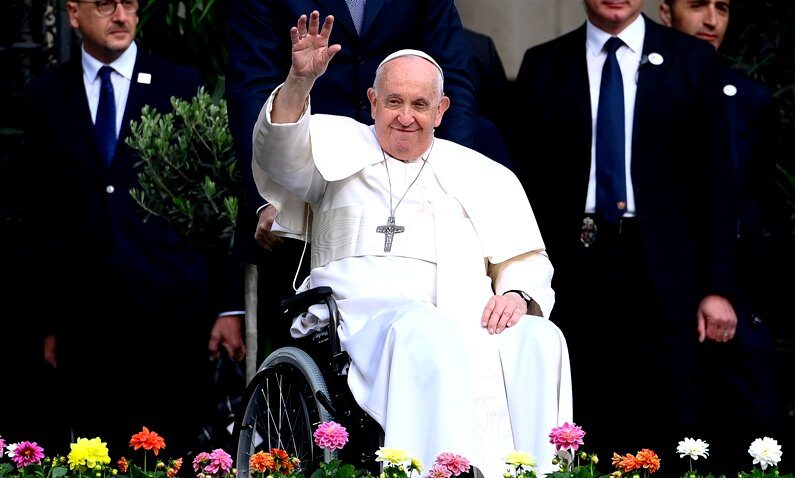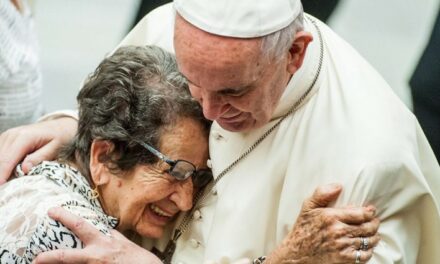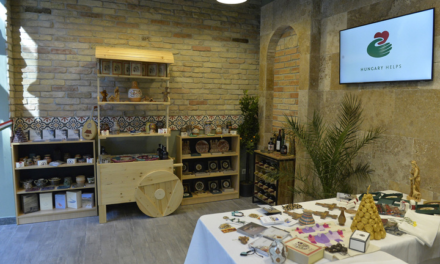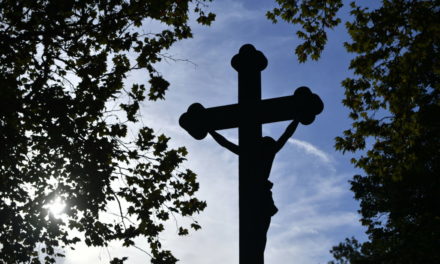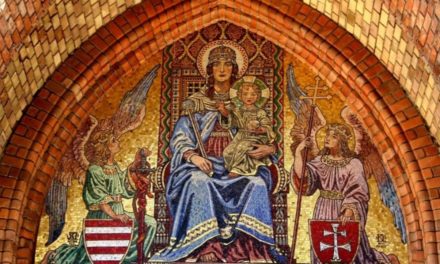Those who followed the details of the first day of the apostolic visit of Pope Francis attentively and with a sympathetic soul and seeing eyes, did not only notice what the TV broadcasts, press photographers, and news agencies reported from the important speeches. Written by Dr. Lajos Békefy.
There were important things hidden in the details, which were not always covered by the commentaries, even if they might have noticed them. We report briefly on the details of Pope Francis' Friday recorded with a spiritual camera.
Affection with speech cadence skipping - communication beyond words
On the first day of the visit, the Spirit camera recorded the perceptible moments of the impact twice. Not only what everyone could perceive, that among the large and expensive security escort limousines, the Pope rode on Christ's 21st donkey, the little white Fiat.
His Latin American heart and values, "the poor will always be with you" (Mark 14:7), according to Jesus' admonition, shuns pomp both in the Vatican and in Budapest. His option is clear: he looks at history and everyday life, the events of the world and the church from a specific perspective.
The focus of his camera captures both the heavenly perspective of the statement and the inferior perspective of the poor, the inhabitants of the depths. The two are included in his vision at the same time, simultaneously, in a synopsis. And this was not the only thing that could be noticed by the somewhat similarly pious man observing with a pneumatic-synoptic high-deep spiritual Kandi camera.
Also, that the "pedestrian pope," who now needs a wheelchair more often than not, wears his black high-top lace-up shoes the same way he did at the start of his papacy. He also brought this way of wearing with him from Argentina.In addition to these two permanent characteristics, two others have caught up today. One is emotion. When the President of the Republic, Katalin Novák, after her country-enhancing holiday speech in which she named her office, Hungarian womanhood, and the Hungarian saints of our Christianity as "Signora" with the words of the Pope, Pope Franciscus began his large-scale speech, the pace and momentum of his speech fell out at the beginning and at the end. He took a deep breath to continue. It can be assumed that the emotion may be related to his age, which does not characterize the manner of speech of Christ's earthly vicars.
Perhaps this is closer to reality, that Pope Francis listened to Katalin Novák's speech with his heart, not just with his ears and intellect. This was expressed in the change of pace at the beginning of the speech.His respect for Hungarian Christianity could also be felt in the cadence that reappeared at the end of the speech. As a non-verbal, unintentional-conscious, and therefore deeply sincere communication, when he remembered the Hungarian nuns in Argentina who brought news of our country to Buenos Aires, to Archbishop Jorge Mario Bergoglio, over 15,000 kilometers away. When he mentioned his multiple and memorable meetings with them, he again skipped a beat with emotion...
As the Pope of the "holy kiss" in St. Stephen's Basilica
In the New Testament, in the letters of Paul (Rom 16:16; 1 Cor 16:20; 2 Cor 13:12; 1 Thess 5:26) and in the letter of the apostle Peter (1 Pet 5:14), we read about a holy kiss and the kiss of love (en Philémati hagio, then en filémati agapés - about the holy kiss, the kiss of holy love, which is not the kiss of eros). Pál and Péter greeted the congregations with this.
In the early church and in the emerging congregations, the holy kiss, the form of greeting practiced from right to left, was an expression of commitment to the community and part of the service. Church father Tertullian puts it this way: "What kind of prayer is it that lacks the holy kiss at the end?". Elsewhere, he calls this act the same as peacemakers. Church Father Augustine notes that before the faithful partake of the Lord's Supper, they kiss each other with a holy kiss as a sign of their inner reconciliation. Forgiveness, forgetting, and even expressions of respect were the sacred salts.
This custom lasted until the 13th century, after which the respectful bow came into "fashion". This was changed by Pope Francis in St. Stephen's Basilica - but apparently elsewhere as well.When he entered the crowded church with his entourage in a wheelchair, he noticed a man sitting in a wheelchair in the middle. He immediately steered his pushcart there, leaned forward from the chair and kissed the unknown hand of the mutilated man, who, saying something to him, handed him a book. Then, when the priest brother of the happy János Brenner, the elderly father József Brenner, first greeted the Holy Father with words of testimony, he recalled that all three boys from their family became priests. János' brother was executed by the anti-clerical authorities at the age of 26. At the end of his speech, he approached the Pope, and before kissing the papal ring on Francis' hand, the Pope preceded him as a sign of respect and kissed the hand of his elderly fellow priest. The third kiss of respect, the holy kiss of agape, came out of the herm of our King Saint István. And even then, that certain emotional beat happened, it was perceptibly difficult to speak.
Chief Shepherd's admonitions
Among the many thought-provoking teachings of his speech, his advice matured from pastoral experience, there were some that also struck my Protestant ears in a good way. Among the big messages are small wisdoms. For example: you should pay more attention to the tabernacle than to the Internet. Then: creed is more important than ideologies. And what he told almost like a refrain, infused with humor, to priests and bishops, monks and sisters, religious teachers and deacons in the basilica:
Don't gossip! He identified this disruptive method of the devil as one of the most dangerous temptations of the church.
But what can be done about it? Pope Francis' answer: to pray or bite our tongue when this temptation arises...
The man is in the details - even if he is a pope. It was good to see and notice these "little things", in which the Catholic head of the church came closer to our Protestant hearts as a person, as a Christian...
Dr. Lajos Békefy/Felvidék.ma
Featured image: MTI/Zsolt Czeglédi

